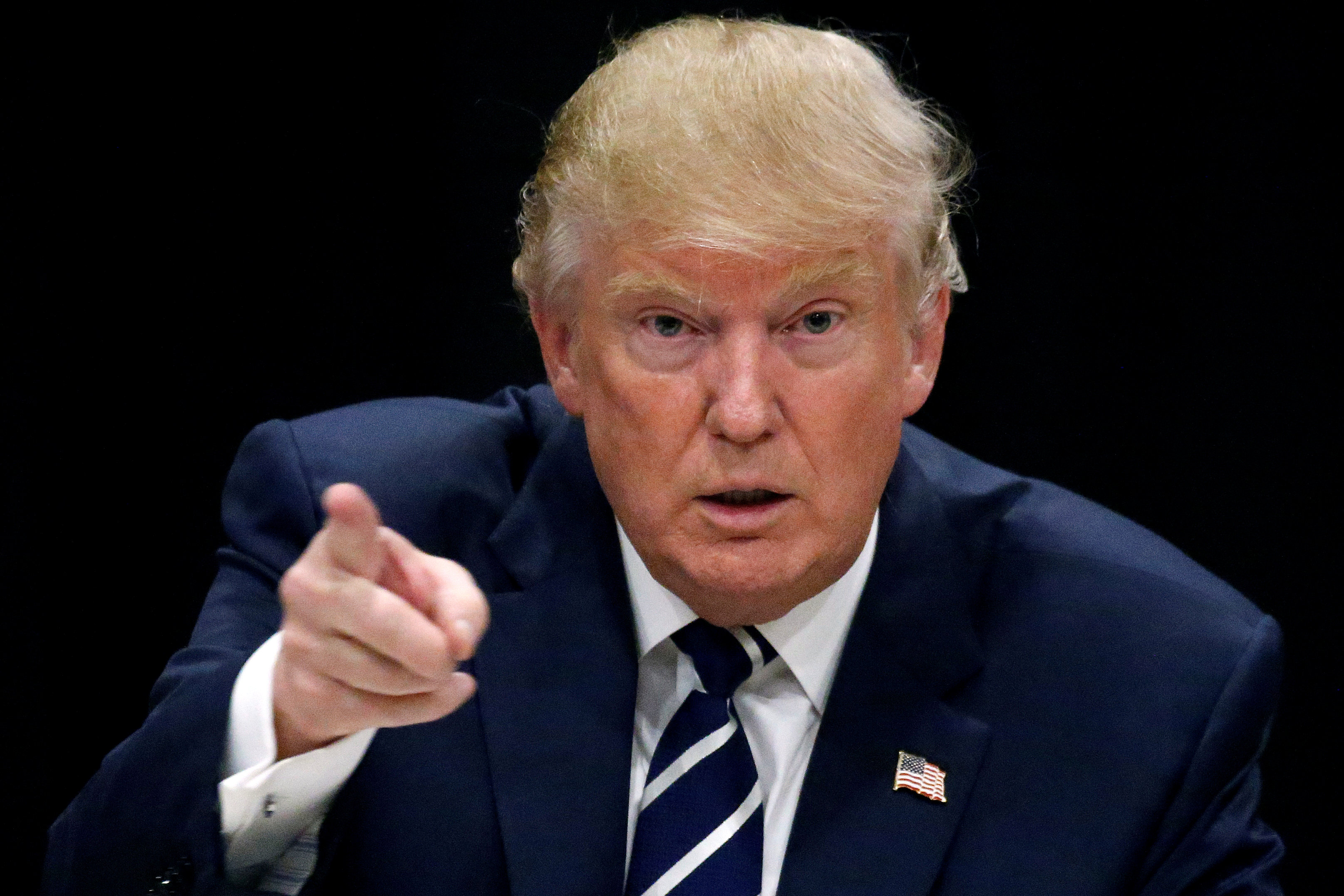Image: U.S. Republican presidential nominee Donald Trump appears at a campaign roundtable event in Manchester, New Hampshire, U.S., October 28, 2016.
By Steve Holland and Mark Hosenball
WASHINGTON (Reuters) – President-elect Donald Trump jettisoned a respected national security expert from his transition team on Tuesday in a sign that he may be settling on loyalists such as former New York City Mayor Rudy Giuliani and conservative hard-liners like former U.N. Ambassador John Bolton to staff his administration.
Mike Rogers, a former U.S. congressman from Michigan who had been mentioned as a possible pick for CIA director, was pushed out in part because Trump’s advisers believed he did not pursue Democratic presidential candidate Hillary Clinton aggressively enough when he headed the House of Representatives intelligence committee, a source familiar with the decision said.
Others characterized the sudden departure of Rogers as part a “purge” of relatively moderate Republicans who had staffed the transition team under New Jersey Governor Chris Christie, who on Friday was abruptly replaced as head of the team by Vice President-elect Mike Pence.
Pence has not yet filled out paperwork required by law to work on the transition with Democratic President Barack Obama’s outgoing administration, the White House said.
With fewer than 70 days until his Jan. 20 inauguration, the Republican president-elect has little time to settle on Cabinet members and other senior appointees. Trump, who had never previously run for office until his surprise victory over Clinton last week, will eventually need to fill roughly 4,000 open positions.
Trump’s task is made more difficult by the fact that many of those who might normally staff a Republican administration denounced him during the campaign.
Two national security officials said Trump’s operation had been slow to get up to speed and had not yet deeply engaged with security and intelligence agency personnel who were ready to start helping them out. Trump was due to receive his first formal national security briefing on Tuesday.
Some current U.S. intelligence officials expressed worry that Rogers’ departure would mean that Trump was leaning toward more confrontational figures to lead his foreign policy team.
In Congress, Rogers led an investigation into the Sept. 11, 2012, attacks by militants on U.S. facilities in Benghazi, Libya that killed the U.S. ambassador and three other Americans. The probe dismissed many of the conspiracy theories that had been circulated by critics of then-Secretary of State Clinton’s role.
Trump’s team viewed the investigation as a whitewash, according to one source familiar with the operation.
Giuliani and Bolton are being considered for secretary of state, according to sources close to Trump. Giuliani, New York’s mayor at the time of the Sept. 11, 2001, attacks by Islamist al Qaeda militants, is known as a hard-liner on national security matters. Bolton is also a foreign policy hawk who said last year the United States should bomb Iran to halt its nuclear program.
Retired Lieutenant General Mike Flynn, a leading candidate for Trump’s national security adviser, has called for the United States to pull back from protecting long-time allies such as South Korea and Japan.
Pence and other top advisers, including Alabama Senator Jeff Sessions and Wall Street executive Steve Mnuchin, did not speak to reporters as they arrived at Trump’s New York City apartment building on Tuesday.
Mnuchin is a leading candidate to serve as treasury secretary, according to sources close to Trump. Sessions, one of Trump’s closest allies in Washington, might serve as secretary of defense or attorney general.
Some prominent Republican experts who might be tapped to fill out a Trump administration, meanwhile, told colleagues to steer clear.
“After exchange w Trump transition team, changed my recommendation: stay away. They’re angry, arrogant, screaming ‘you LOST!’ Will be ugly,” former State Department official Eliot Cohen wrote on Twitter.
TWO POSTS FILLED
Trump has filled two positions so far. His choice of Republican Party insider Reince Priebus to be White House chief of staff was heralded by Republican leaders as an indication he wants to work with the party in Congress. Republicans maintained their majority in both the Senate and House in last week’s election, but a number of Republicans in Congress had opposed Trump’s candidacy.
However, Trump’s appointment of Steve Bannon as chief strategist was roundly criticized by Democrats, civil rights organizations and some Republicans. They denounced the former Breitbart News chief, whose website is a forum for the “alt-right,” a loose grouping of neo-Nazis, white supremacists and anti-Semites.
Neither Priebus nor Bannon need Senate confirmation for their posts, but Cabinet posts do, and some of Trump’s possible picks could face a difficult time winning approval.
Republican U.S. Senator Rand Paul of Kentucky said on CNN he could not vote to confirm Bolton unless he repudiated his support for the Iraq war and bombing of Iran. Paul, who ran unsuccessfully for the Republican presidential nomination won by Trump, also said he was concerned by Giuliani’s work on behalf of foreign governments.
Trump loyalist Ben Carson, who advised Trump after dropping his own presidential bid earlier this year, has opted against accepting a Cabinet position in his administration, his spokesman said.
Carson, a retired neurosurgeon with no government experience, had been mentioned as a possible head of the Education Department or Health and Human Services Department.
“His life has not prepared him to be a Cabinet secretary,” said Armstrong Williams, Carson’s business manager.
(Additional reporting by John Walcott, Ayesha Rascoe, Emily Stephenson, Patricia Zengerle, Warren Strobel, John Wolcott; Writing by Andy Sullivan; Editing by Frances Kerry and Will Dunham)
Copyright 2015 Thomson Reuters. Click for Restrictions.


